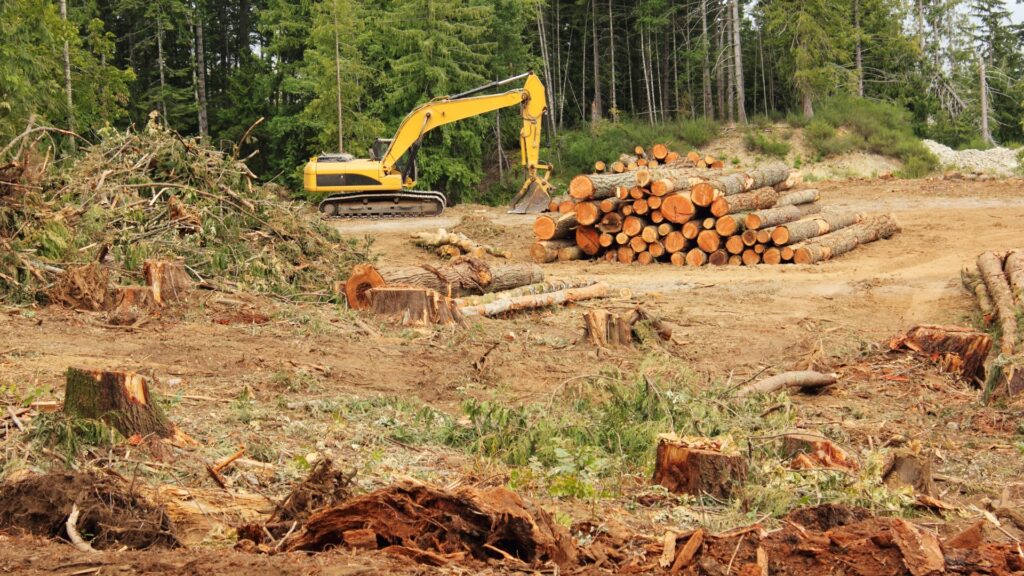Almost half of all illegal tropical wood imported into the European Union is trafficked through Belgium, a new report by the International Consortium of Investigative Journalists (ICIJ), alongside De Tijd, Knack and Le Soir, has now revealed.
Illegally imported timber is flourishing in Belgium, reportedly due to the lack of controls by a severely understaffed Environmental Department, low administrative fines, and the lack of convictions.
In the last 10 years, Belgian imports of wood coming from non-EU countries have doubled. Last year, 234.000 tonnes of it came into the country, and 80% was transferred towards other Member States. Most of the wood comes from Cameroon, Gabon and Brazil, countries that are high-risk in terms of illegal logging and corruption in the wood sector, reports De Tijd.
Illegal wood trade contributes to deforestation in the origin countries, driving ecosystem destruction, biodiversity loss, and damage to people’s health. Deforestation can turn fertile land arid, and releases much of the absorbed CO2 by trees back into the atmosphere – feeding into the global rise of temperatures.
Imports of illegally cut wood have been banned in the EU since 2013, but the Belgian Government has not been able to criminally convict a single timber importer since. Furthermore, it could not prove the illegal origin of the wood, the investigation reveals.
The Environmental Department has two inspectors who work on this matter, and they are able to perform a maximum of 30 inspections per year. Fines are light, typically ranging from €5,000-€15,000. Meanwhile, there are 4,500 wood importers are active in the country, and 450 are responsible for 98% of the imports.
Phillipe Verbelen, who works with biodiversity at Greenpeace, said that the chance of catching wood importers in Belgium, even after a decade of the European Timber Regulation, was still “very, very small.”
“How can you enforce the rules in Belgium with only about 20 checks in a year? That’s almost nothing when you see how much timber enters Belgium,” he stated.
Related News
- Climate change has weakened 60% of Walloon forest species
- Earth Overshoot Day: From today, Belgians live on ecological credit
- Tropical deforestation significantly reduces rainfall, study shows
In 2017, the European Commission started legal action against Belgium, accusing it of failing to tackle the illegal wood trade, because the controls were minimal. That year, there were only five inspections on tropical wood imports.
Last year, a report commissioned by the Health Department showed that even without taking illegal timber imports into account, Belgium’s economy is closely linked to overseas deforestation, via imports of other commodities, such as coffee, cocoa, tobacco, soy, cattle, and palm oil.

